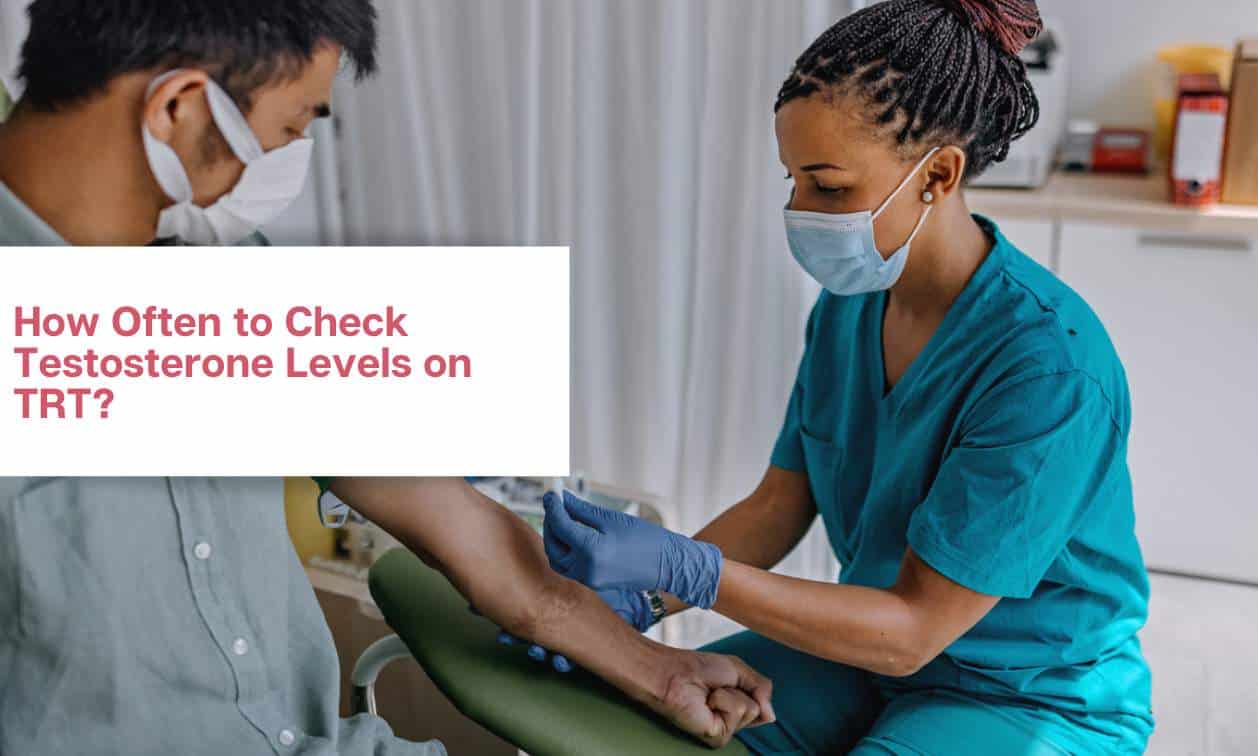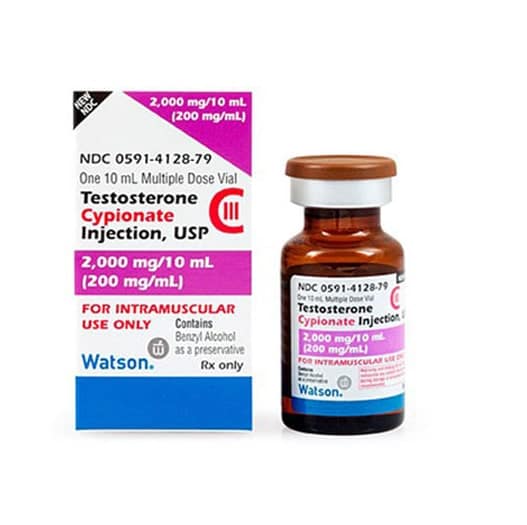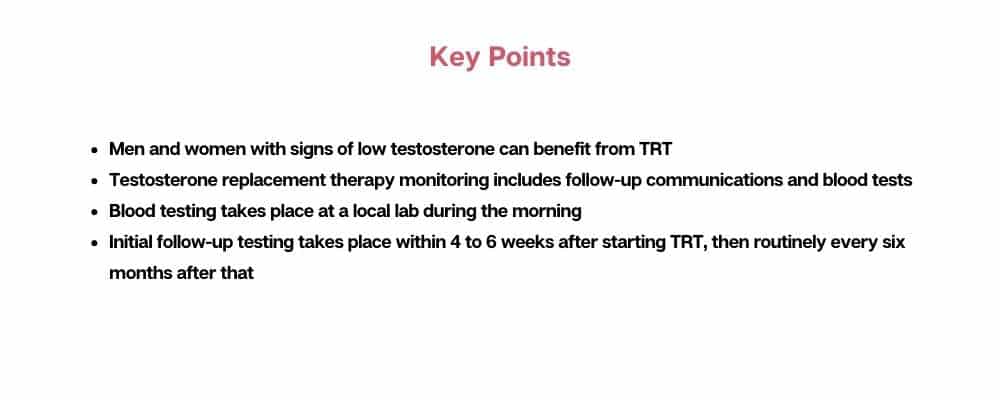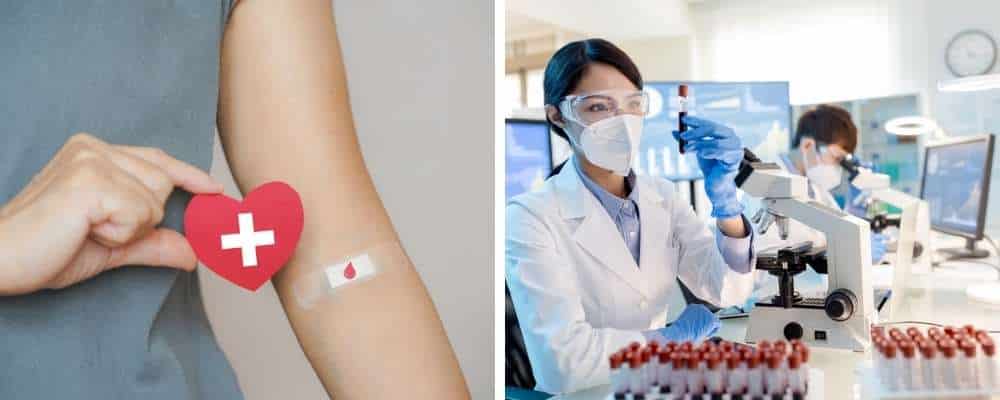
How Often to Check Testosterone Levels on TRT?
Table of Contents
Testosterone replacement therapy (TRT) is a beneficial treatment for men and women suffering from signs and symptoms of low testosterone (Low T). While on any hormone replacement therapy (HRT), you want to monitor hormone and other blood levels to ensure that everything is proceeding as it should.
This review focuses on the importance of testosterone level monitoring while receiving treatment, what to expect, and how to prepare for your tests. The primary factor to remember is that your hormone specialist knows best and to follow all doctor recommendations regarding your treatment and any follow-up testing.
Who Needs TRT?
Any man or woman exhibiting signs of testosterone deficiency can benefit from TRT. Testosterone has multiple functions in the adult body that are crucial to overall health, cognitive performance, sexuality, and emotional well-being. These benefits go far beyond maintaining or building muscle mass and supporting erectile functions.
Men and women need testosterone to promote red blood cell production, which is crucial for transporting oxygen throughout the body. Many adults diagnosed with anemia also have low testosterone levels, as testosterone supports erythropoiesis in the bone marrow.
Other reasons why adults need testosterone, and therefore TRT when testosterone levels are low include:
- Maintaining lean muscle to protect the body from harm
- Increasing bone mineral density to strengthen the body’s skeletal structure
- Supporting healthy functions in the brain, including memory recall
- Promoting hair growth
- Providing testosterone for conversion into estradiol (the most abundant form of estrogen)
- Assisting with fertility in men and women
- Stimulating metabolic functions to aid with fat-burning and energy
- Supporting sexual desire, arousal, and orgasm
- Keeping cortisol (stress hormone) levels from getting too high
- Maintaining balanced hormone levels, including estrogen, human growth hormone, and cortisol
Protecting your testosterone levels is crucial as you age. Testosterone replacement therapy takes over when the body does not produce enough hormone for its needs.
How Does Testosterone Replacement Therapy Monitoring Work?
Testosterone replacement therapy monitoring consists of regular communication with the hormone therapy clinic to ensure no adverse effects are noticed from the treatment. A physical examination once a year is necessary for all adults receiving HRT. Follow-up blood panels are also required.
While on testosterone, men should have a yearly digital rectal examination/prostate screening, and women should get yearly mammograms.
What is monitored while on TRT?
Blood pressure, your symptoms, and inquiries about side effects are monitored while you are on hormone replacement therapy. The following blood panels are used to test for hormone deficiency in men and women as well as to monitor your progress while on TRT:
- Total Testosterone
- Estradiol
- CBC
- CMP
- IGF-1
- Lipid Panel
- Free T4 (Direct)
- TSH
Other possible tests for males include:
- PSA (included in the basic male panel)
- Follicle Stimulating Hormone (FSH) & Luteinizing Hormone (LH)
- Free Testosterone
Other additional blood panels for females include:
- Free Testosterone (included in the basic female panel)
- Progesterone
- DHEA-S
Why do you need to monitor your T levels on TRT?
Monitoring your testosterone levels is crucial to ensure they do not become too high. Follow-up testing also lets the doctor know how well your body metabolizes TRT. Your doctor may need to optimize or adjust the dosage to ensure you get safe, effective results.
How Is the Test for T Levels Performed?
We will discuss the scheduling of your blood test with you and provide the necessary information and guidance to facilitate an easy experience. The first thing to know is how to prepare for your blood test.
How to prepare for blood work
Fasting is crucial to get an accurate reading as hormones such as testosterone are at their highest level first thing in the morning. As soon as you consume any food or drink (other than water), it can alter your test results, and we will not get an accurate assessment of how your body is adjusting to the treatment. Do not consume anything after midnight of the night before your test.
Testing for hormone levels takes place at a local laboratory. When you arrive in the morning, you will check in at the desk or counter, and the staff will prepare your forms for testing. Once they are ready, you will be called and taken to a room for your blood draw.
Here are the steps to expect for the blood test:
- You will be asked which arm you want to use and will be directed to sit in a chair with that arm resting on an armrest.
- The lab technician will check your veins by appearance and palpation to determine the appropriate spot. A rubber band (tourniquet) will be placed around your upper arm to stop additional blood flow and allow the veins in the arm to fill with blood for easier access.
- The technician will sterilize the spot on your arm with an alcohol pad. The blood draw is typically from inside the bend of the elbow.
- A small needle is gently inserted into the vein, and a few test tubes of different colors may be used to gather the blood for the ordered tests.
- Once the tubes are full, the technician will remove the needle and rubber band, and a cotton ball or gauze pad will apply pressure to the needle site on the arm.
- A bandage will cover the pad, and you will receive instructions on when to remove it.
Do not do any heavy lifting with that arm right after the blood test. The process takes only a few minutes, and you will be quickly on your way.

How Often Do You Need to Check Your T Levels?
Testosterone production begins to slow down in your twenties. We recommend that people test their testosterone and other hormone levels in their mid-thirties. That way, we can take proactive rather than reactive actions to correct any deficiency before problems arise.
Of course, if you have any symptoms of hormonal imbalance or decline before that time, we recommend getting tested sooner rather than later. The baseline reading we get during the first test will determine how frequently you should receive these tests. Primary care physicians rarely check hormone levels during a yearly physical. Our hormone specialists will monitor these levels to help you stay healthy as you age.
What about follow-up blood testing when you are using testosterone therapy?
Follow-up blood testing is crucial during your treatment with any hormone, including testosterone. The doctor will monitor your progress to see how well your body metabolizes the hormones you receive. That way, if adjustments up or down in the dosage are necessary, it can happen as soon as possible to improve your results.
Once you begin treatment, the following testing time is within a 4-to-6-week period. That gives your body time to get used to the supplemental hormones.
Most people will then test twice a year, every six months. Some people, including those with underlying health issues, may require more frequent testing.
Conclusion
Testosterone replacement therapy is safe when prescribed and monitored by a hormone specialist. Follow-up consultations, blood testing, and yearly physical examinations are crucial to ensure the treatment is progressing correctly without any adverse reactions.
Frequently Asked Questions
What blood work should be done while on TRT?
Most of the lab panels performed initially are repeated to ensure that testosterone, estradiol, PSA, thyroid, blood count, and cholesterol levels are where they should be.
When is a TRT lab needed?
TRT lab tests are necessary to diagnose the need for testosterone treatment and monitor the body’s testosterone and other hormone levels while using testosterone replacement therapy.
How often do you check PSA when on testosterone?
As with other blood levels, PSA should be checked every six months while using testosterone. An annual digital rectal examination is also advised for men as part of their yearly physical.
How do you monitor testosterone therapy?
Testosterone therapy is monitored with follow-up lab testing as well as open communication to ensure that there are no adverse effects. We offer both phone and email communications.



